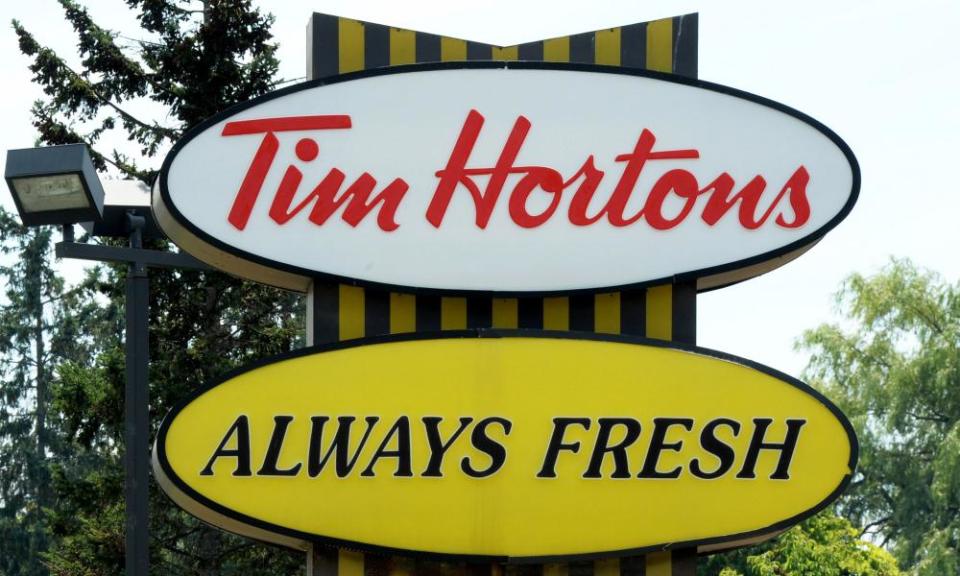Always fresh? Canada's Tim Hortons coffee chain steams into UK

Canadian company Tim Hortons is to open its first UK coffee shop in May, entering the crowded but still growing British market for food and drink on the go.
Promising to bring its “signature coffee, delicious food and Canadian charm” to the UK, the chain’s first UK coffee shop – also its first foray in Europe – will be on Argyle Street in central Glasgow, with further outlets planned in other city centre locations around the country.
The company is seeking to cash in on the UK’s fast-growing coffee market – where it faces intense competition from major players such as Starbucks and Costa, independent chains and low-cost operators.
Tim Hortons – known for its red and white vintage-style branding – was founded in 1964 by its namesake (Miles “Tim” Horton), a professional ice hockey player who wanted to create cafes where everyone would feel at home.
Since then the brand has grown to become an ingrained part of Canadian culture, dominating its home market with locations in nearly every city and small town. It claims eight out of 10 cups of coffee sold across Canada are served at Tim Hortons, which is owned by Restaurant Brands International.
A recent report from Mintel showed the UK retail coffee market was worth £137m in 1997, but by 2016 it had ballooned to an estimated £3.4bn. Almost £1bn of this growth has come since 2011, making the UK an attractive proposition for international coffee shop chains.
Jonny Forsyth, Mintel’s global drinks analyst, said Tim Hortons faced challenges in terms of timing. “Competition has become incredibly intense and there are now simply too many brands in competition with each other,” he said.
“For example, Starbucks has announced disappointing results recently and is under threat from the growth of trendy independent coffee shops at the top end and also lower-priced, non-specialist operators such as JD Wetherspoon and Greggs.
“We are also starting to see inflation outstripping wage growth, which means UK consumers will have less disposable income in the lead-up to Brexit.”
Tim Hortons president Elias Díaz Sesé said: “Great Britain is a nation of coffee lovers, so we’re confident Tim Hortons will continue to be a leader in the quick service restaurant sector across the pond.”
Forsyth said a major obstacle for Tim Hortons was that “it is little known outside of its native Canada, something which explains why it also struggled to make inroads on the US coffee market in recent years”.
Tim Hortons’ signature freshly brewed drip coffee – medium roast and guaranteed to be served no more than 20 minutes after brewing – will be on sale in the UK. But British palates may find another Tim Hortons favourite in Canada, the “double-double” coffee served with two portions of cream and two sugars, a step too far.

 Yahoo Finance
Yahoo Finance 